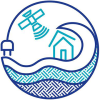Recommendations » Overall recommendations:
1. Use PILNA data effectively
The first main recommendation is that ministries of education, development partners and other stakeholders use PILNA data effectively.
A wealth of information has been collected in PILNA 2021 that has wide relevance. PILNA data should be used to their full potential to lift student performance and improve the experiences and environments of those in local education systems.
Some general recommendations to help achieve this are provided below.
- Use the findings from PILNA 2021 to inform actions on student performance or address challenges that stakeholders are experiencing. Some regional findings from PILNA 2021 may justify immediate action or interventions in areas such as student performance, learning environments and well-being.
- Analyse the regional PILNA data in more depth and in different ways to better understand student performance and the experiences of students and education stakeholders. While not covered comprehensively in this regional report, PILNA 2021 provides ample data to review. Ministries of education, teacher training organisations and other stakeholders are encouraged to explore the data for additional regional understanding.
- Analyse PILNA data at country level to understand what the findings mean in local contexts. Ministries of education are encouraged to collaborate with SPC-EQAP and other partners to explore national data in ways that meet local needs and address local priorities. National PILNA insights should inform change where needed.
- Share country level data and findings with relevant stakeholders. This can enable new analyses of local circumstances and can help to share the task of understanding the large quantity of data. Ministries of education are encouraged to share national findings with groups such as teachers, education institutions, regional entities and community organisations. Being wide-ranging, PILNA data may be valuable to stakeholders beyond education and enable them to create positive change.
- Compare and integrate PILNA data with existing national, regional and global data, where appropriate. Comparing PILNA data to wider data sets can give perspective to the results and allow the PILNA findings to be understood in a wider context. Integrating PILNA data with existing or future data may enable broader analyses to be done and wider conclusions to be drawn. Ministries of education should share PILNA data to enable these analyses where appropriate.








